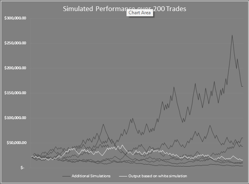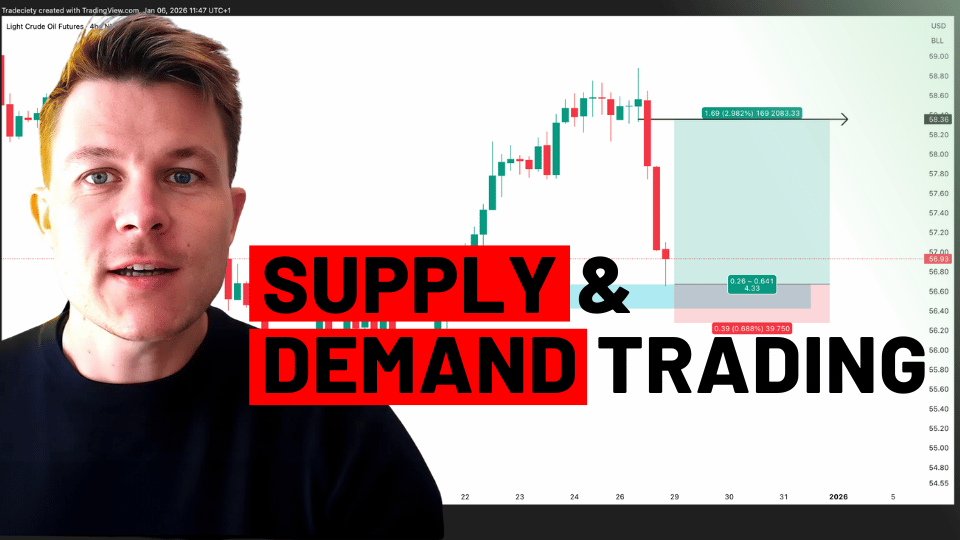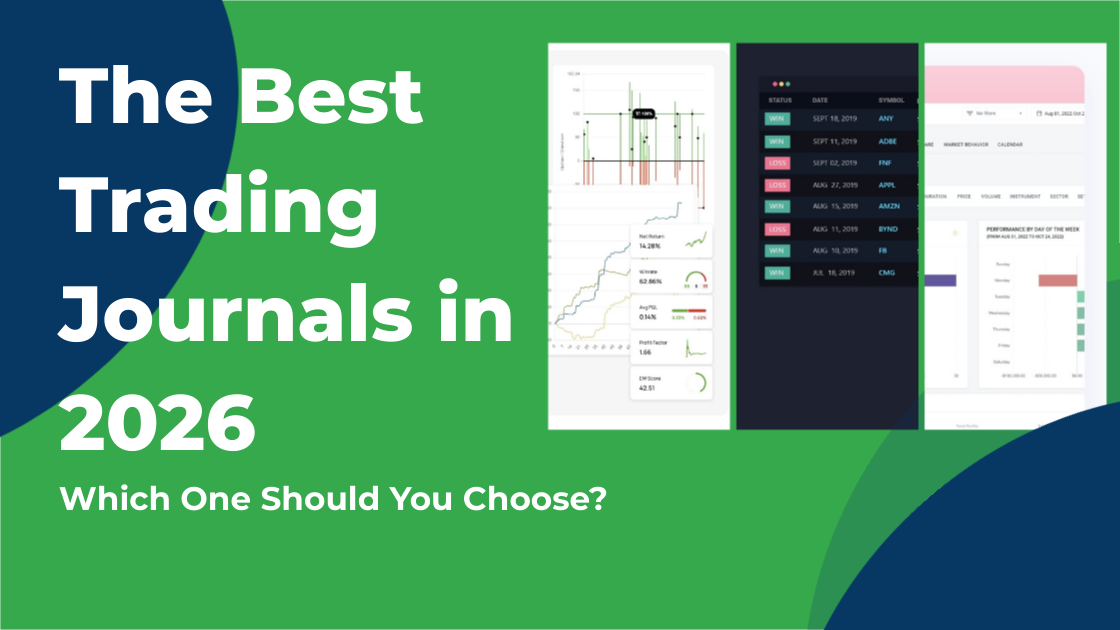Supply and Demand Trading in 2026
We have been trading supply and demand strategies for over ten years, and they have stood the test of time remarkably well. Supply and demand is...

People call themselves ‘traders’ because traders trade, right!? But a more appropriate description of your job would be the one of a ‘risk-taker‘. As a trader you bet your money on something you cannot control, where you have no influence over the outcome and even though you play your best game, you do everything you possibly can and are 100% committed to your plan, you could easily end up losing without being it your fault. In this article, I show you what being a risk-taker means and the mindset you have to acquire in order to trade successfully.
 We touched on this one briefly, but it is important that you understand the full meaning of it. Although you might have a system that you trust based on previous results and you follow all your rules to a T, any setup or any one trade can fail at any time. After you entered a trade based on your criteria, it is out of your hand whether the price will reach your take profit or the stop loss order. Traders often make the mistake of ‘getting married’ to their trades and they believe that if a setup is especially promising it should turn out as a winner. This thinking is dangerous and wrong. You can never know whether your trade will be a winner or a loser in advance – why would you enter the losing trades then anyways!?
We touched on this one briefly, but it is important that you understand the full meaning of it. Although you might have a system that you trust based on previous results and you follow all your rules to a T, any setup or any one trade can fail at any time. After you entered a trade based on your criteria, it is out of your hand whether the price will reach your take profit or the stop loss order. Traders often make the mistake of ‘getting married’ to their trades and they believe that if a setup is especially promising it should turn out as a winner. This thinking is dangerous and wrong. You can never know whether your trade will be a winner or a loser in advance – why would you enter the losing trades then anyways!?
As a trader you have to be indifferent towards the outcome. It should not matter whether you win or lose if you have done everything correctly.
Lesson 1: Understand that you cannot control or predict the outcome of a trade. Don’t get married to your trades; you can’t avoid losing trades. Being a trader means that you deal with the unknown every single day.
 Sport-betters have always known this: When you bet on a team that is more likely to win, you are willing to risk more because you have a higher chance of making money and when the team of your choice does not stand a high chance of winning, you risk less. Traders are not that smart…Wouldn’t it make sense to risk more when your winrate is 75% than when your trading strategy only has a winrate of 50%? A lower winrate means that you will have more losing trades. Therefore, the greater your risk per trade, the bigger your swings will be in your account balance.
Sport-betters have always known this: When you bet on a team that is more likely to win, you are willing to risk more because you have a higher chance of making money and when the team of your choice does not stand a high chance of winning, you risk less. Traders are not that smart…Wouldn’t it make sense to risk more when your winrate is 75% than when your trading strategy only has a winrate of 50%? A lower winrate means that you will have more losing trades. Therefore, the greater your risk per trade, the bigger your swings will be in your account balance.
This is especially interesting for traders who trade multiple setups or strategies. Try it out and see how your performance will change if you give more weight to the trades that have a higher winrate and reduce the risk for low-winrate setups. It can smoothen the variance significantly.
Having said that, the reward:risk ratio must make sense as well and if the potential upside is limited, it does not justify the trade – let alone a larger bet.
Lesson 2: Don’t arbitrarily risk a random amount of 2% on any given trade. It’s a myth that risking 2% on any given trade is the way to go. Understand the connection between winrate, position size and the impacts on your account balance. Reduce the risk on low-winrate setups to avoid too much variance.
You might have a back-tested and forward-tested trading strategy and you can fairly accurately state that your winrate is 65% – or whatever. With this information you can foresee that over your next 1000 trades, you will come close to 650 winning and 350 losing trades. However, your winrate cannot provide any information about the outcome of the next 5, 10 or 20 trades. Having 10 losers over the next 10 trades can happen just as easily as having 10 winning trades in a row.
In the short-term, anything is possible and it’s not in your control.
The data in the table below is based on a trading strategy with a 60% winrate. As you can see, even 6 losing trades in a row will occur every 245 trades. If you take 2 trades per day, you will have a losing streak of 6 trades twice per year. And in the meantime, you will experience several losing streaks of 3, 4 or 5 losing trades in a row.
When you hit a losing streak, ask yourself: Did I follow my rules and did I do everything correctly? Or am I the one that made the mistake and caused the losses?
| Losers in a row | Every … trades |
| 2 | 6 |
| 3 | 16 |
| 4 | 40 |
| 5 | 98 |
| 6 | 245 |
| 7 | 600 |
Lesson 3: Don’t think that losing-streaks are your mistake. But even more important, don’t lose your head when it happens. Commit to playing your A-game every single trade. Losing streaks will end if you stick to the plan.
Most traders always focus on the next big trade and ask questions about how to maximize their profits. It does make sense to a degree, but whenever I work with a trader, I try to focus on the defense as well.
I have seen traders make the biggest mindset and performance improvements once they focus more on protecting their capital and making sure losses don’t get out of hand. When you can cut losses effectively, be more selective, adhere to risk management principles and avoid revenge-trading and chasing price, two things will happen: first, your account will develop in a smoother way and the huge swings will stop. Secondly, your mindset will relax and you will become a calmer trader. This second point is where you then see a lot of additional benefits in other areas in your trading. You don’t rush trades, you don’t try to play catch up, you don’t chase, you are selective and you do not stress about growing your account faster.
Mental capital (being in a good emotional state) is more important than monetary capital. Traders who lose their mental capital and then get frustrated, lose the joy and the excitement about trading will either quit or enter the “gambling state” where they just try to hit home-runs and search for the Holy Grail without being serious about their craft.
If you are into trading to make money, which is the primary reason why we all are into trading, you have to treat it like a job and give it the seriousness it requires.
Good trading has to be repetitive, dull and boring. What a bummer, eh!? But stick with me. By this I mean that if you get excited during your trading sessions, celebrate your winners or cry over your losses, you are not a professional trader, but a hobby gambler. Or, it can also be a sign that your position sizing is way too high.
Trading is an activity of dealing with probabilities where you know that the correct combination of risk:reward ratio and winrate will give you an edge. Your only job is to make sure that you execute your trades 100% according to your plan and don’t get emotionally attached. That is the job description of a trader.
Trading has to be repetitive, boring and dull. Every day you look for the exact same things, your trades should look identical and you must follow a structured approach. It does not mean that it isn’t enjoyable, but the “fun” doesn’t come from doubling your account in a week or a month with inadequate risk management, but it comes from following your plan, doing the things you KNOW are right, conquering yourself and realizing your potential.
Lesson 5: If you are looking for excitement and entertainment, trading is not the place to be. A trader is rational, emotion-less and does the same things over and over again.

We have been trading supply and demand strategies for over ten years, and they have stood the test of time remarkably well. Supply and demand is...

3 min read
Choosing the right trading journal is essential for traders wanting to analyze performance, refine strategies, and improve consistency. In this...

3 min read
“95% of all traders fail” is the most commonly used trading related statistic around the internet. But no research paper exists that proves this...